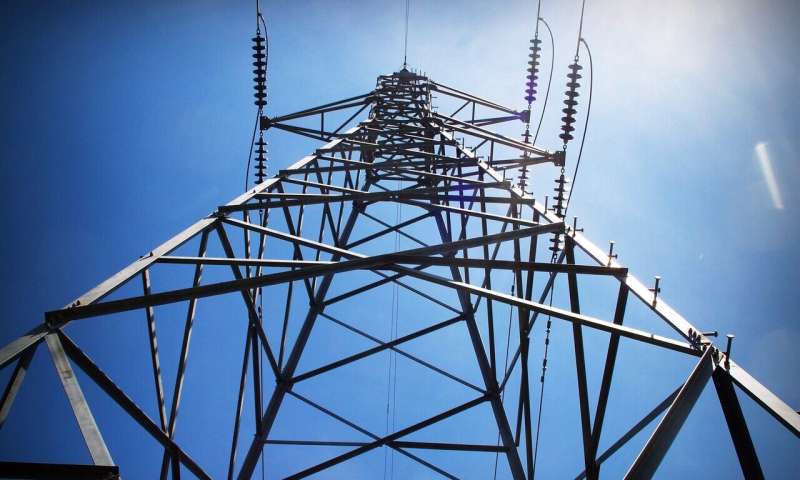Tying quantum computing to AI prompts a smarter power grid

Fumbling to find flashlights during blackouts may soon be a distant memory, as quantum computing and artificial intelligence could learn to decipher an electric grid’s problematic quirks and solve system hiccups so fast, humans may not notice.
Rather than energy grid faults turning into giant problems—such as voltage variations or widespread blackouts—blazing fast computation blended with artificial intelligence could rapidly diagnose trouble and find solutions in tiny splits of seconds, according to Cornell research forthcoming in Applied Energy (Dec. 1, 2021).
“Energy power system failures are an old problem and we are still using classic computational methods to resolve them,” said Fengqi You, the Roxanne E. and Michael J. Zak Professor in Energy Systems Engineering in the College of Engineering. “Today’s power systems can benefit from AI and the computational power of quantum computing, so power systems can be stable and reliable.”
You, along with doctoral student Akshay Ajagekar, are co-authors of “Quantum Computing-based Hybrid Deep Learning for Fault Diagnosis in Electrical Power Systems.”
U.S. utilities generated about 4 trillion kilowatt hours in 2020, according to the federal U.S. Energy Information Administration (USEIA). This electricity is carried over regional grids, but due to storms, downed trees, ancient transmission lines and other misfortunes, outages occur.
In 2016, for example, U.S. customers experienced on average more than four hours of electric energy interruption, while in 2017 that average rose to nearly eight hours, according to USEIA. Consumers suffered about six hours of energy interruption in 2018.
The scientists propose a first-time, novel hybrid solution by creating a quantum-computing-based “intelligent system” approach to build a fault-diagnosis framework to accurately find problems in electrical power systems.
In the paper, the researchers demonstrated the efficacy and scalability in a large-scale IEEE test electrical power system. In it, they found that a quantum computing-based deep-learning approach can be scaled efficiently for a quick diagnosis in larger power systems without loss of performance.
You and Ajagekar believe that quantum computing and artificial intelligence can save most of the system failure. “Integrating quantum computing with intelligence—even though it is not yet a mature technology—will solve real problems now,” Ajagekar said. “It works very well.
“We cannot afford for grids to go down,” Ajagekar said. “That’s why fast fault diagnosis is in electrical power systems is very important. Today’s systems have sensors, but even they’re not good enough now. We need efficiency. It’s very expensive to wait minutes, hours or days.”
As society moves toward a greener environmental future, the ubiquity of electricity will become more important. “Electrical power systems are the backbone of our modern world,” said You, a faculty fellow with the Cornell Atkinson Center for Sustainability. “The marriage of quantum technologies and AI could make a difference in our daily life.”
This research used resources of the Oak Ridge Leadership Computing Facility, which is part of the U.S. Department of Energy. In December 2020, You and Ajagekar published a paper on quantum computing-based deep learning for fault detection and diagnosis in industrial manufacturing, in a follow-up to filing for a U.S. Patent.
Akshay Ajagekar et al, Quantum computing based hybrid deep learning for fault diagnosis in electrical power systems, Applied Energy (2021). DOI: 10.1016/j.apenergy.2021.117628
Akshay Ajagekar et al, Quantum computing assisted deep learning for fault detection and diagnosis in industrial process systems, Computers & Chemical Engineering (2020). DOI: 10.1016/j.compchemeng.2020.107119
Citation:
Tying quantum computing to AI prompts a smarter power grid (2021, September 29)
retrieved 29 September 2021
from https://techxplore.com/news/2021-09-tying-quantum-ai-prompts-smarter.html
This document is subject to copyright. Apart from any fair dealing for the purpose of private study or research, no
part may be reproduced without the written permission. The content is provided for information purposes only.
For all the latest Technology News Click Here
For the latest news and updates, follow us on Google News.
